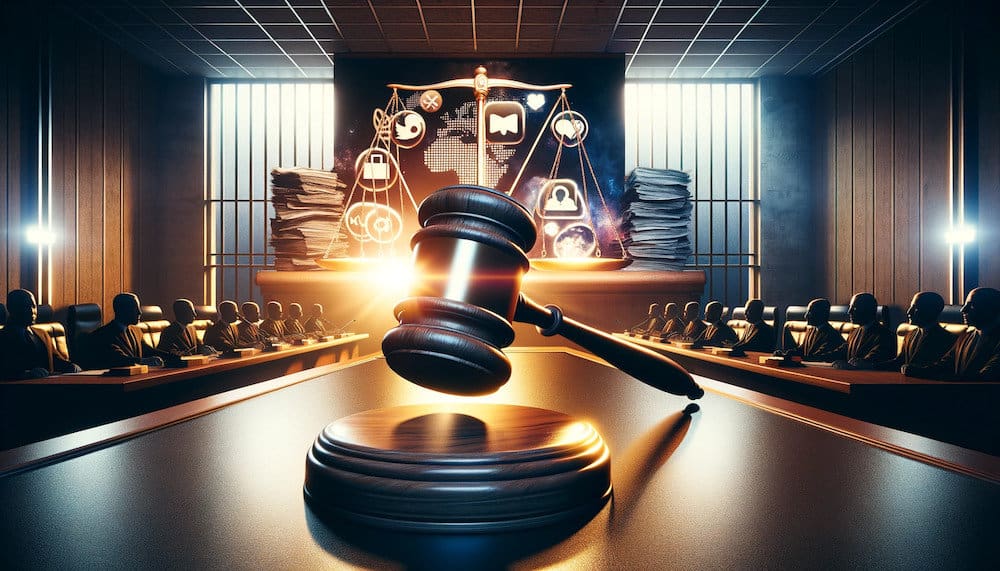In a significant legal development, X Corp (formerly known as Twitter) has filed a lawsuit against Media Matters for America and Eric Hananoki, alleging a calculated attempt to harm the social media platform’s business through false representations.
The lawsuit, filed in the United States District Court for the Northern District of Texas, Fort Worth Division, under case number 4:23-cv-1175, delves into complex accusations of manipulation and misrepresentation.
X Corp, a Nevada corporation that operates the widely-known social media platform X, accuses Media Matters, a Washington D.C.-based non-profit, of creating and disseminating false images.
These images allegedly show advertisers’ posts adjacent to neo-Nazi and white-nationalist content, falsely implying that this is a typical experience for users on the X platform. The complaint details that these images were misleading and manipulated to harm X Corp’s reputation and business.
The plaintiff argues that Media Matters manipulated the platform’s algorithms to produce these images. This manipulation, as alleged, was aimed specifically to drive advertisers away, causing direct harm to X Corp’s business interests.
The fallout from these actions was significant, with major advertisers, including prominent names like Apple, Comcast, NBCUniversal, and IBM, withdrawing their advertising from the X platform, leading to a substantial loss of revenue.
At the heart of the allegations is the claim that Media Matters fabricated images to falsely portray X’s platform as a host for extremist content alongside advertiser posts.
X Corp asserts that the typical user experience on its platform is under the control of the users themselves and that the representations made by Media Matters do not reflect this reality. The complaint suggests Media Matters targeted specific user accounts and content to create these misleading images.
The reaction from advertisers to Media Matters’ report was swift and damaging. Several major advertisers withdrew from X Corp, influenced by the belief that the content pairing depicted in Media Matters’ report was a common occurrence on the platform.
X Corp alleges that Media Matters engaged in deceptive reporting by omitting the manipulated nature of their findings, misleading both readers and advertisers.
X Corp’s legal action against Media Matters is based on several claims. First, it accuses Media Matters of interference with contractual relations, alleging intentional disruption of X Corp’s business contracts with its advertisers.
Second, the complaint charges Media Matters with business disparagement, accusing them of spreading false information that disparaged X Corp’s products and business practices.
Finally, X Corp alleges interference with prospective economic advantage, claiming that Media Matters’ actions disrupted potential economic relationships and opportunities.
The legal relief sought by X Corp is multifaceted. The company is seeking damages for the alleged misconduct of Media Matters. Additionally, X Corp is requesting an injunction to compel the removal of the contentious article from Media Matters’ platforms.
The complaint also includes a demand for coverage of litigation costs and attorney fees, along with any additional relief the court may deem appropriate.
The lawsuit filed by X Corp against Media Matters highlights a growing tension between media platforms and the entities reporting on them. This case raises important questions about the responsibility of media organizations in their portrayal of social media platforms and the impact of their reporting on business practices and reputational integrity.
As the legal process unfolds, the eyes of the tech and media worlds will be keenly focused on this case. The outcome has the potential to set a precedent for how media reports on social media platforms are conducted and the legal responsibilities involved.
It is a landmark case that will be closely watched for its implications on media ethics, business practices, and the legal boundaries of reporting in the digital age.










